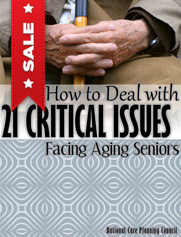
One of the many benefits to being a senior citizen includes having free access to government benefits. This is a great way for seniors to save money on their health care and other expenses. These benefits come in the form of a variety of programs and services that are designed to benefit low-income seniors. They include health insurance programs, Medicare Savings Programs, and even Medicare Supplemental Insurance (MSI).
Among the free government benefits for seniors are programs that are designed to help seniors with the basics of living. Medicare Savings Programs, for example, can help with prescriptions, copayments, or other costs. Some programs are also available as a replacement to employee-sponsored insurance.
There are also programs available that can help you purchase affordable products or treat your disease. Lifeline, a government-run program, provides free government phones for those who are eligible. The program can help you receive a home-energy assistance grant to improve the efficiency of your home.

Another free government benefit for seniors is the Commodity Supplemental Food Program, or CSFP for short. This program provides healthy food and refers people to social services. Your household's income may determine whether you are eligible for a box of food delivered right to your door. A food pantry can also provide assistance.
Your local Area Agency on Aging can be your first stop for finding free government benefits for seniors. In most cases, this agency has a website or a contact phone number for you to call and get assistance. For additional resources, check out your local charities.
You may also be eligible for other government benefits, but you will need to contact your local government office in order to determine what is available. PACE is an acronym for Program of All-Inclusive Healthcare for the Elderly. PACE provides social services for seniors over 55.
Medicare Savings Programmes are also a great way for seniors to make savings on healthcare expenses. These programs work with each state to understand the needs of its residents. The most important benefit of these programs is that they can help you save money for retirement.

The Medicare Savings Programs are free government benefits for seniors that are 65 and older. These programs can help you save money for your health care and retirement. These programs can also help you save money on other expenses, such as college.
Supplemental Security Information (SSI), a federal program providing cash payments to low income seniors, is one other benefit seniors can look into. SSI helps low-income seniors to meet their basic needs, such as food and clothing. You can also receive assistance if your senior is blind or disabled.
The best free government benefit for seniors is the one that fits your needs. You should also check with your local government to see if you are eligible for any government benefits for seniors. Free money may be available to you to help you improve your skills and/or find new employment opportunities.
FAQ
Why do we need medical systems at all?
People who live in developing countries are often without basic health care. Many people living in these areas will die before they reach their middle years from diseases such as tuberculosis.
In developed countries, most people get routine checkups and visit their general practitioners for minor illnesses. But many people still suffer from chronic illnesses like diabetes and heart disease.
What role can I play in public healthcare?
Participation in prevention programs can help you and others protect their health. By reporting illness and injury to health professionals, you can improve public health.
What should I know concerning vaccines
Vaccines are very safe and effective ways to keep you healthy. Vaccines provide immunity against certain diseases. Vaccinations are usually given at specific times during childhood, adolescence, and adulthood. Your doctor will help you decide when is the best time to get vaccines.
What should we know about health insurance
If you have health insurance, you should keep track of your policy documents. If you have any questions, make sure to ask. If you don't understand something, ask your provider or call customer service.
When you need to use your insurance, don't forget to take advantage your plan's deductible. Your deductible represents the amount you will have to pay before your policy begins covering the rest.
Statistics
- Consuming over 10 percent of [3] (en.wikipedia.org)
- Foreign investment in hospitals—up to 70% ownership- has been encouraged as an incentive for privatization. (en.wikipedia.org)
- For instance, Chinese hospital charges tend toward 50% for drugs, another major percentage for equipment, and a small percentage for healthcare professional fees. (en.wikipedia.org)
- About 14 percent of Americans have chronic kidney disease. (rasmussen.edu)
- Healthcare Occupations PRINTER-FRIENDLY Employment in healthcare occupations is projected to grow 16 percent from 2020 to 2030, much faster than the average for all occupations, adding about 2.6 million new jobs. (bls.gov)
External Links
How To
What are the 4 Health Systems?
The healthcare system is complex and includes many organizations, such as hospitals, clinics. pharmaceutical companies. insurance providers. government agencies. public health officials.
This infographic was created to help people understand the US healthcare system.
These are the key points
-
The annual healthcare expenditure is $2 trillion. This represents 17% the GDP. That's almost twice the size of the entire defense budget!
-
Medical inflation reached 6.6% for 2015, more than any other category.
-
Americans spend 9% on average for their health expenses.
-
As of 2014 there were more than 300,000,000 Americans who weren't insured.
-
The Affordable Care Act (ACA) has been signed into law, but it isn't been fully implemented yet. There are still gaps in coverage.
-
A majority of Americans believe the ACA should be maintained.
-
The US spends the most money on healthcare in the world than any other country.
-
Affordable healthcare for all Americans would reduce the cost of healthcare by $2.8 trillion per year.
-
Medicare, Medicaid and private insurers pay 56% of healthcare expenses.
-
The top three reasons people aren't getting insured include not being financially able ($25 billion), having too much time to look for insurance ($16.4 trillion), and not knowing what it is ($14.7 billion).
-
There are two types of plans: HMO (health maintenance organization) and PPO (preferred provider organization).
-
Private insurance covers the majority of services including doctors, dentists and prescriptions.
-
Public programs provide hospitalization, inpatient surgery, nursing home care, long-term health care, and preventive services.
-
Medicare is a federal program which provides senior citizens with coverage for their health. It covers hospital stays, skilled nursing facilities stays, and home care visits.
-
Medicaid is a program of the federal and state governments that offers financial assistance to low-income people and families who earn too much to be eligible for other benefits.